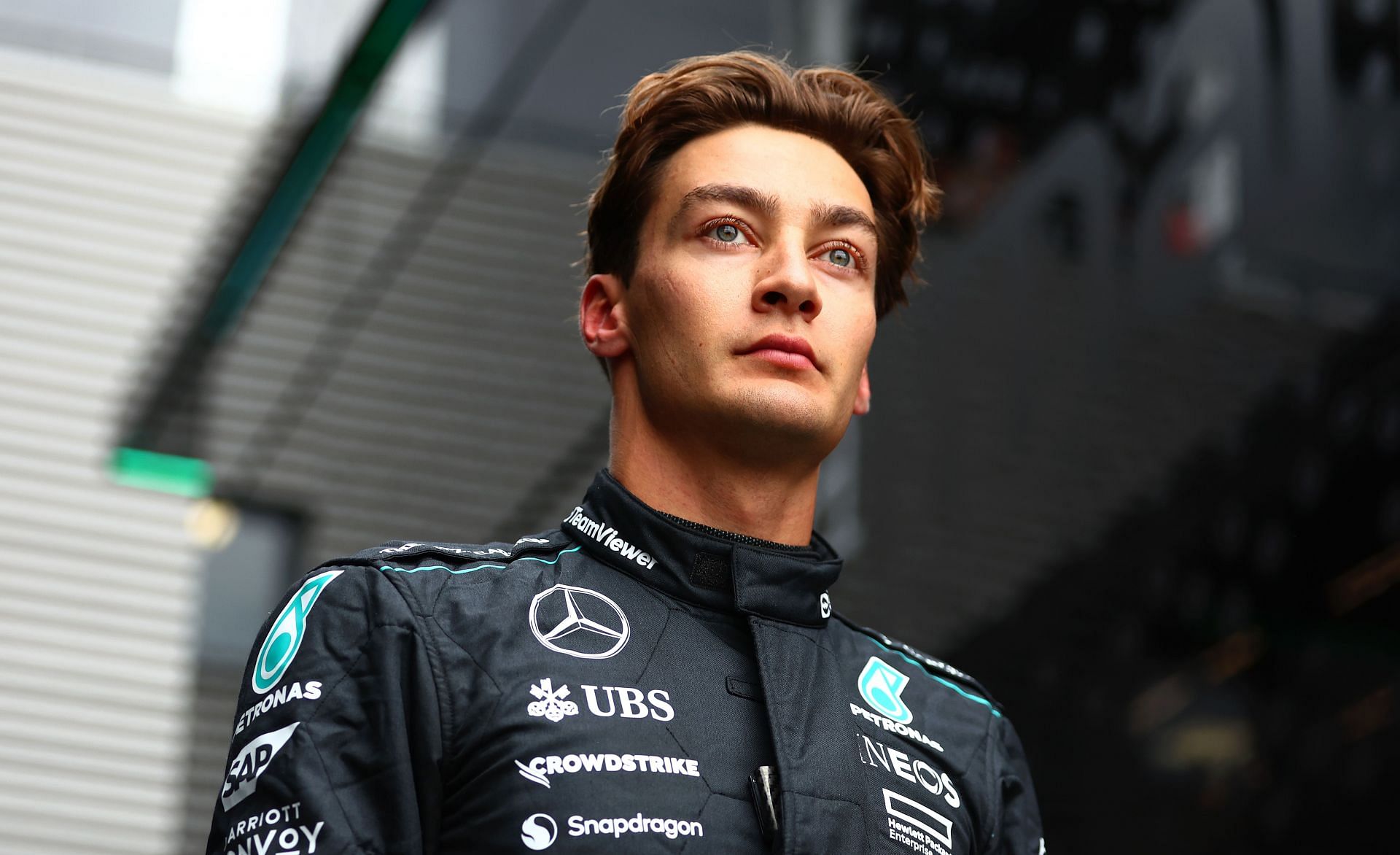5 F1 drivers who were disqualified after winning a race feat. George Russell
 George Russell in the F1 Grand Prix of Belgium (Photo by Bryn Lennon – Formula 1/Formula 1 via Getty Images)
George Russell in the F1 Grand Prix of Belgium (Photo by Bryn Lennon – Formula 1/Formula 1 via Getty Images)
F1’s recent visit to Spa-Francorchamps witnessed Mercedes driver George Russell pull off an impressive victory over his teammate Lewis Hamilton, only to be disqualified in the post-race inspections. After a heartbreaking loss in the Belgian GP, Russell became only the sixth F1 driver to be disqualified after taking the checkered flag first.
The young Brit has unexpectedly joined an elite company of world champions who also faced similar disqualifications after their triumphs.
The rules for post-race inspections are often black and white, with no margin for error. George Russell became the first race winner to be disqualified in the 21st century.
Let us take a look at a look at five drivers who lost a race win through disqualification.
5 F1 race winners who got disqualified
#1 George Russell – 2024 Belgian GP
With a one-stop strategy, George Russell put himself in the mix for victory, outfoxing his teammate Lewis Hamilton and the rest of the front runners, who were on the conventional two-stopper strategy for the race. Russell managed to fend off his teammate to take his third F1 victory, albeit for a short duration.
Russell lost the victory as his #63 Mercedes W15 was 1.5 kg below the 798 kg minimum weight. The technical infringement handed the win to his teammate Hamilton.
#2 Michael Schumacher – 1994 Belgian GP
Prior to Russell’s disqualification, the most recent race winner to be disqualified was Michael Schumacher, at the same venue. Schumacher’s disqualification resulted from excessive wear of the wooden skid block placed below his Benetton B194.
Whilst embroiled in a title fight with Damon Hill, Schumacher had won the Belgian GP with a handy lead of 13s over his title rival. However, the wooden skid block had worn down by over 1mm, resulting in a disqualification for the German driver. The wooden planks were introduced just two races prior, and any excessive wear over 1mm was not permitted.
Hill inherited the victory, but Schumacher would go on to win his first of seven titles at the season’s end.
#3 Ayrton Senna – 1989 Japanese GP
The 1989 Japanese GP remains one of the most pivotal episodes of the Senna-Prost rivalry and one of the most controversial events in F1 history.
On Lap 47 of 53, Ayrton Senna and Alain Prost collided, forcing both cars off the track. Prost exited his McLaren, while Senna received assistance from the marshals and rejoined the track by cutting the chicane. He went on to win the race, only to be disqualified for missing the chicane after the collision.
Alessandro Nannini inherited what would be his lone F1 victory, while Prost won the championship.
#4 Alain Prost – 1985 San Marino GP
The four-time F1 champion Alain Prost faced disqualification after winning the 1985 San Marino GP during his quest for his first title. The race at Imola witnessed multiple drivers running out of fuel due to the limited fuel allowances. Prost, then driving for McLaren, was first to the checkered flag, however, his car also ran out of fuel in the cool down lap.
Alain Prost’s car failed the post-race inspections as it was underweight by two kilograms. This disqualification awarded the race victory to home hero Elio De Angelis, who drove for Lotus.
#5 Nelson Piquet – 1982 Brazilian GP
The three-time F1 champion Nelson Piquet’s home heroics in the 1982 Brazilian GP were undone by a post-race disqualification. Piquet, driving for Brabham, clinched the victory after weathering the hot temperatures. However, both his Brabham and the second-place finisher Keke Rosberg’s Williams were disqualified for being underweight.
The disqualification occurred during the tense FISA-FOCA war, with both teams running a ballast water tank, allegedly used to cool the brakes. However, this tank would gradually be emptied during the race and refilled in the latter stages to pass the post-race inspections.
Alain Prost inherited the victory, which marked his fifth F1 race win.





